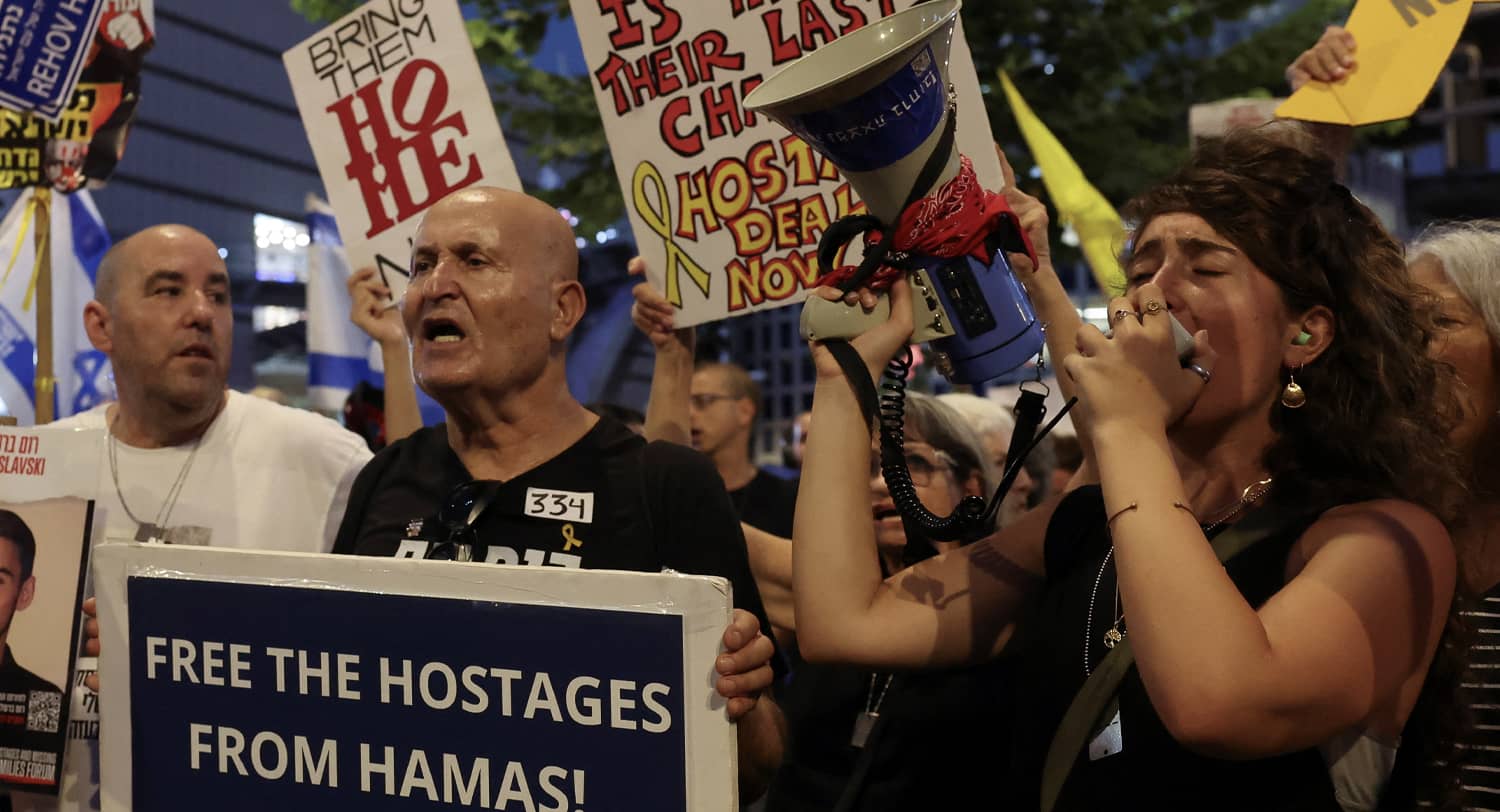There are two sets of hostages in Gaza and both require American leadership to be free.
Less than two weeks after their emotional address at the Democratic National Convention on behalf of their son, the parents of Hersh Goldberg-Polin were told that he was found dead in a tunnel below Rafah.
Hersh was one of six hostages whose bodies were recovered from the dark. Hamas had killed them before they were discovered by Israeli troops and the news set off cascading and colliding emotions across both the Middle East and middle America.
It was a heartbreaking reminder of the cruel fates suffered by civilians on both sides. Some were dancing at a peace festival; others went out to find formula for their baby. All were erased by a cause that they didn’t join or understand.
The mood in Israel is a volatile compound of grief and anger, as some citizens blame their own elected leaders for perceived failures to win the freedom of hostages held by pitiless men. Others fault their government for the Palestinian lives lost to air strikes. Hundreds of thousands of Israelis have crowded into the streets, rallying against their government and demanding change, while others continue to support their government’s continued prosecution of the war.
This reveals the incredible tension coiling up in Israeli society. The demonstrators have expressed frustration not only with the handling of the hostage crisis but also with Prime Minister Benjamin Netanyahu, who has become a divisive figure.
Meanwhile, US officials have condemned Hamas while pleading for peace. President Biden expressed his outrage, vowing that “Hamas leaders will pay for these crimes.” Vice President Kamala Harris labeled Hamas as an “evil terrorist organization” that must be “eliminated.” These statements, while strong, have been criticized for lack of alignment with the strategic realities on the ground.
They reflect a broad American commitment to combat extremism but fall short of addressing the specific complexities of the situation in Gaza.
It is essential for US leaders to hold fast to principles of human rights. Hamas’ use of rape, murder, and kidnapping is not to be forgotten. The moral burden for the war should not be shifted only onto Netanyahu. On the other hand, Israel must be extremely selective in its use of force to minimize the loss of Palestinian innocent lives.
The focus must remain on the core issue: dismantling the threat posed by Hamas and preventing their continued rule over Gaza. This approach is crucial not only for addressing the immediate crisis but also for reinforcing a clear stance against extremism throughout the region.
On September 4, the US Department of Justic indicted six Hamas leaders on seven charges, including the murder of dozens of US citizens on October 7, conspiracy to finance terrorism and use of weapons of mass destruction. The criminal complaint covers decades of terrorist actions by Hamas, not only those committed last October. It’s a good start.
We must remember that in Gaza there are two sets of hostages: the 101 Jewish and Muslim Israelis (and third country nationals taken from Israel), and the more than two million Palestinians of Gaza ruled over by a terrorist organization.
Both sets of hostages need life and freedom. America must follow human rights principles in Gaza and lead the international community in replacing Hamas with a local and representative government. America must stop the potential “geopolitics of hostage-taking” which if allowed to survive in Gaza would make the Israeli-Palestinian conflict infinitely worse.
The Palestinian people deserve a government that serves them. They deserve a government that represents their aspirations, not the cynical goals of the faraway dictatorship of Iran.
As the funder and supplier of Hamas, Iran presents perhaps the greatest challenge for US national security and the security of US allies in the region, with its expanding influence in the Middle East and its new focus on Africa. The establishment of a dangerous military presence in Sudan, coupled with potential attacks on American and Israeli interests, highlights the urgent need for a robust response.
American policy must adapt to counter these threats effectively and prevent Iran from leveraging regional chaos to its advantage.
Revitalizing the Abraham Accords should be a priority for any new president. These agreements represent a significant step towards peace in the Middle East, but their ultimate success hinges on broader acceptance and support from the majority of Muslim and Arab populations.
Strengthening these Accords will help counter extremist ideologies and foster stability in a region often plagued by conflict.
The upcoming election represents a pivotal moment for America’s resilience and renewal. America must return to its best version of itself. Addressing the threats posed by Hamas and Iran requires clarity and firmness.

